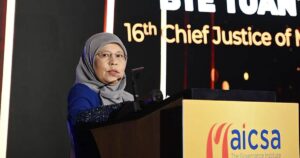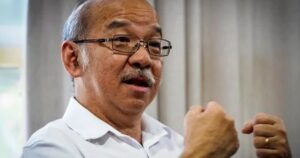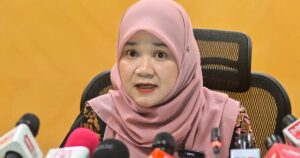
The health ministry has made it mandatory for contract medical officers appointed to permanent positions to select at least one placement option in Sabah or Sarawak through the e-Placement 2.0 system, to address the uneven distribution of healthcare personnel between Peninsular Malaysia and the Borneo states.
Health minister Dzulkefly Ahmad said the approach, which had never been implemented before, reflected the government’s commitment to narrowing the gap in the placement of specialists, doctors, and nurses across the country.
“It is mandatory that one of the three choices must be a placement in Sabah or Sarawak, which has never been done before,” he said during the oral question-and-answer session in the Dewan Rakyat today.
He was responding to Richard Rapu (GPS-Betong), who asked about the government’s measures to reduce the imbalance in the distribution of healthcare human resources in Peninsular Malaysia, Sabah, and Sarawak, particularly the placement of specialists, doctors, and nurses.
Dzulkefly said the ministry had also set placement quotas for permanent medical officers – 650 in Sarawak and 310 in Sabah – representing 42.7% of the 2,248 officers recently appointed nationwide.
He said a total of 1,002 contract medical officers had been placed in Sabah and 937 in Sarawak as of March 31, to meet the growing workforce demands at public health facilities in the states.
He said the ministry also supported the initiatives of state governments to offer scholarships for medical and health studies, and to provide additional merit points for those serving in Sabah and Sarawak, particularly in remote areas and the interior.
“This merit serves as a weightage – an added score in evaluating candidates for scholarship selection,” he said.
To a supplementary question from Richard on strategies to retain medical officers in the public sector, Dzulkefly said one key measure was the absorption of contract officers into permanent positions.
“Over the past three years, we have successfully absorbed more than 13,552 contract medical officers into permanent roles,” he said.
He said the effort was in line with recent amendments to the Medical Act, which now recognised the parallel pathway and local master’s programmes – an initiative aimed at encouraging doctors to remain in public service.






